Introduction
Have you considered that your anxiety might not originate in your brain?
In fact, your diet may be the culprit for the rollercoaster of emotions you may experience.
This week on The Goodness Lover Podcast, we find answers to anxiety and depression with Dr. Drew Ramsey - Nutritional Psychiatrist, Clinical Professor, and author of Eat To Beat Depression and Anxiety.
Watch along as Dr. Ramsey explains how to manage and take ahold of your mental health by changing your daily nutritional habits!
We had a great laugh while learning about the gut’s impact on hormonal and chemical signals that communicate through the vagus nerve to shift brain function!
Together we will learn how to utilize food to reboot your mental health and how the power of feeding your brain can create long-term happiness!
Watch the Interview:
This podcast episode highlights:
🤕 How inflammation drives poor metabolic health.
🧠 The mechanism behind inflammation’s attack on cognition.
⚖️ Why mental health is not affected by one factor alone.
✨ How BDNF encourages and facilitates neuroplasticity (the ability to grow new connections.
🍬 Why packaged and processed foods are poor for your health.
🥝 Why fiber should be a staple in your diet.
🧐 How to step back from diet culture to determine what nutrition lifestyle works best for you.
And much more!
Additional Resources
To connect with Dr. Ramsey and discover more of his work, you can find him on Instagram and Facebook. You can also visit his website here.Transcript
Sarah: Hello. Welcome back to the Goodness Lover Show. Today, we're joined by Dr. Drew Ramsey, who's a pioneer in the nutritional psychiatry space. He's here to tell us about how food impacts depression and anxiety. We cover a lot in this interview. So, be prepared to learn about BDNF, how to grow your brain, gut health, fiber, inflammation, and all of the above. We have a lot of laughs. So, let's dive in.
Sarah: Dr. Drew Ramsey, it is wonderful to be with you today to talk all things in nutritional psychiatry. You've just come out with your new book, Eat to Beat Depression and Anxiety. We're so excited to dive into it all. Thanks for joining us.
Dr. Drew Ramsey: Thank you, Matt and Sarah. It's pleasure to be here and also to talk with your audience, because you've had some of the real legends in nutritional psychiatry, Uma Naidoo who I know and adore. So, it's really exciting to be here with you and to talk about the new book, especially now, as we're all talking about our mental health. What can we do to better feed our brain cells and take care of our mental health?
Sarah: Wonderful, thank you so much. I would love to start the interview by talking a bit about you. How did you get into this field? Because nutritional psychiatry, it's a new thing. How did you get into it?
Dr. Drew Ramsey: That's a great question. Thank you for that. It's exciting for me, because it's not been a new thing for me. It's been a lonely thing for me. I've been one of the few nutritional psychiatrists really in the States. I mean, my first book on the subject came out in 2011. So, I started during residency. It's 2004. I finished my training at Columbia. So, that point, I'm 30 years old. All this data is coming out about food and mental health. It just really strikes me that we don't incorporate nutrition at all when we interview patients, when we think about therapy, when we think about interventions, when we think about treatment plans. It's just not part of how we operated in psychiatry. It just seemed like a huge opportunity to me.
And then the data started to come in. And then really over the past five years, the data is really exciting. So, you asked me a personal question. I don't mean to be some wonky academic and be like, "Let me tell you about the data." On a personal level, I guess mental health just always mattered to me, just in my own personal challenges with my mental health, mainly just probably mood and some anxiety, but just coming from a family that had a variety of flavors of mental health challenges.
Psychiatry has always mattered to me in medicine. It's just the most interesting part of medicine, the most interesting part of who we are, our brains, how they function, how they don't, how we all have to work to get a harness on our sense of ourselves and our ambitions and a notion of how our brains work and who we are as individuals. So, that's always been deeply exciting and personal and nerdy all at once for me. And then the combination, I think, was in some ways like a lot of people, right? I had this stuff in my personal life. I was this weird vegetarian medical school. I finished medical school in 2000. So, it's like 1997, forever ago. I'm this young, long haired vegetarian, low fat guy.
I'm in Indiana where it's like all pork all the time, pork in corn... I love my Indiana folks. ... and tomatoes. Let's not forget tomatoes. So, it's a little strange. I would say that style of eating also wasn't exactly doing it for me. I was struggling a lot with my energy, with my mood, some of that subtle. I think just as I got older and probably better treatment and more therapy, but they're always in my mind, the real intentionality around what to eat and how it affects your health and how you feel. It goes back to how I was raised by a back to the earth farmer, American hippie people who move back... I'm talking to you now from our farm. ... in really rural Middle America.
Before I became a New York psychiatrist, this is where we're from and we grew a lot of our food and still do. So, probably just as I evolved professionally, these two things in a very personal way, my own interest in mental health and I just love being a psychiatrist. It's such a cool field of medicine. And then just thinking of, in some way, simple farm boy way, it's like, "All right, what are all of the tools we can bring to this fight when someone's got depression and anxiety?" Besides the psychotherapy, besides meds, is there other stuff? Can we bring in mindfulness? Can we bring in nutrition? Can we bring in exercise? How as a clinician can I in some ways both model that a little bit?
So, I'm not just talking the talk, but really, trying to improve my own mental health through these methods but then makes it actionable for people. So, it's not like some crappy nutritional advice that everyone's been getting for a long time like, "Don't eat salt, don't eat cholesterol." That doesn't help people at all, regardless if that's scientifically right or not. We can debate that forever, right? But that just doesn't help people make any changes in their life that are meaningful.
Matt: Awesome.
Dr. Drew Ramsey: Does that answer the question, Sarah?
Sarah: Yes, thank you.
Matt: You took us on a journey with that. That was good. I could see the long hair and you're just surrounded by all the hillbillies fighting your way. So, for our previous guests, we've heard that this is a field that was perhaps a little bit, people thought maybe it was not pseudoscientific, but there wasn't a lot of research on. And then there was some groundbreaking papers that came out that really just made some massive waves in the scientific literature land. Can you tell us about that experience for you as you got into this and saw this as, "Wow, I really need to pay attention to this"?
Dr. Drew Ramsey: Well, it calmed me down because I was already talking about food, lecturing about food. I was speaking every year with colleagues at the American Psychiatric Association about the epidemiological data that exists. So, doctors and everybody loves to say, "Correlation doesn't equal causation." So, the fact that a Mediterranean or whole foods style diet decreases the risk of depression and prospective trials by 30 to 50%. People are like, "Show me the money. Show me the randomized clinical trials." And then those started to come out. Now, there have been for positive and one negative. So, with randomized clinical trials, even though they haven't been the biggest, you can begin to talk in more clear terms. That happened.
The other thing that happened is conceptually we begin to shift. We begin to shift towards thinking about inflammation. That's the buzzword in cardiology or in the wellness world, but it's something that certainly is happening. It's happening as a consequence of the food we eat and is happening because of how those foods drive poor metabolic health and drive a lot of chronic inflammation. So, now, the science is really between our understanding of the microbiome, all the bugs in our gut, and how food affects that, and then how the microbiome affects inflammation and how inflammation affects mood, cognition, and anxiety.
To me, it feels a more clear mechanistic understanding of what I think can feel dismissive to people in the field, right? If you have bipolar disorder or your kid has bad depression, or ADHD, the idea is that well, you didn't eat the right foods, you really messed up yourself or your kid. That's the downside sometimes of nutritional psychiatry is we're hoping to empower people and create agency. I think the hesitation maybe you're speaking to in the field is around often being with people who've tried lots of things and they haven't worked. Or as so many people with mental health concerns have experienced, where you tell people you're depressed or anxious and everybody's got a tip. Have you tried yoga? Have you tried breathing? Have you tried journaling?
Matt: You should just meditate more.
Dr. Drew Ramsey: You should cheer up. Yeah, right.
Matt: You're not working out.
Dr. Drew Ramsey: Right, exactly. The idea that you really just need kale and oyster and salmon and then it's all good. I think that's a reductionistic way for us to think about our mental health. The idea that it's one factor, that's silly, be that Zoloft or wild salmon or mindfulness or really good psychotherapy. It's a combination of these things that tends to improve people's mental health in the long term.
Matt: Awesome. So, let's start with anxiety, because it's been part of your journey, been part of our journey as well. So, specifically around anxiety, what are some of the research and-
Sarah: The data.
Matt: ... the data? I'm super intense.
Sarah: Sorry, we say data.
Dr. Drew Ramsey: So, anxiety is strange, because at least in the US, it's the most prevalent mental health disorder with 40 million Americans. So, that's over 10% of our population that went up during the pandemic. I don't know what the rates are in Australia, but high. It's a common mental health disorder. Anxiety is a little more approachable. We talk about being nervous. We experienced that. It keeps us up. Anxiety disorders, those are generalized anxiety disorder, panic disorder, specific phobia, social phobia, or social anxiety disorder rather. They're overwhelming and very powerful anxious thoughts that begin to interfere with people's functioning.
The difference between I go out to a party, I get a little nervous. I'm a middle aged guy. That's whatever, right? But I take a deep breath and I go, as opposed to you really can't overcome that anxiety. You get shut down in a certain way. You stay home. You begin to isolate. You begin to feel the fabric of your life start to fray a little bit because of your anxiety disorder. So, in terms of nutrition, anxiety has been the bastard stepchild. All the data is about depression and about dementia. There are very few studies about anxiety. Now, in speaking with Felice Jacka for the book, it was really fun part to get to interview her. I asked her specifically about this. I was like, "Felice, I want to write to everybody because anxiety is more prevalent, but all the data's on depression."
She talks about her classic, really gold standard paper. The first trial to intentionally use diet to treat depression. The headlines are that 32.3% of people who were in this trial got the Mediterranean style diet intervention, which in that study was individual sessions and coaching them about diet. Those individuals went full remission, 32.3%. So, that is groundbreaking. But she also said there was a similar result, not quite as strong statistically, with anxiety, that there was a major reduction in anxiety as well. So, I think that's just to note. That didn't make too much of the write up.
There's a little correlational study about choline, which you find in eggs and tofu, but we can't do a lot with correlational data other than what I just did, which is probably not use it so appropriately, because it's correlational. There's some data around things with people have gluten sensitivity. So, about 75% of people with irritable bowel syndrome have anxiety as well, understandably, if you've had serious problems with your gut, if your gut explodes, if you can't control your bowels. I've had a couple periods of this in my life. It makes you incredibly anxious at all times. So, when individuals who have gluten sensitivity or celiac disease go on a gluten free diet, their rates of anxiety go from about 75% of that population back down to about 20, 25%, which is-
Matt: That's substantial.
Dr. Drew Ramsey: ... closer than normal, obviously. So, there are those types of moves. I think in terms of anxiety, what people often think about to get counsel on are stimulants, in terms of caffeine, theobromine, which are in dark chocolate, really anything that triggers a dopamine release. Anxiety is a little tricky, because for some people, stimulants, whether it's a medication stimulant or whether it's coffee and chocolate, it settles them down because they focus and get some work done. Whereas other people who are anxious, when they encounter some of these substances or stimulants, they get really so much more anxious. Everybody's got a value. Your mental health journey is your mental health journey. It's yours.
Lots of people can comment, but it's not something that really should be done by committee, because the only person has to live through it is you. So, that's frustrating to patients. It's certainly hard for clinicians where we're giving an educated guess, but we never know exactly what intervention is going to help somebody. I think what I do want people to hear is almost some intervention does help everyone. I think anxiety and depression are really treatable. Things I also like just in terms of anxiety, there's anxious eating is probably where people encounter it at the most, where we have carb craving or I turn into a little cracker eating chipmunk when I get anxious where it's like all the crackers and all the cheese.
So, there's also that behavioral part of that where different mental states trigger certain types of eating in us. And then I think of the interventions, where for me, I know when I'm anxious, a really nice cup of tea with honey really settles me down or sometimes I get anxious, my tummy's a little upset. So, I know it's better for me to figure out my day around really simple foods like cashew, nut butter, and banana cinnamon smoothie, right? Something that's really settling and a lot of ginger tea and not lots of big brainfood salads, not because it's not good for me. Just because when I'm in that anxious state, sometimes I'm not settled down to really relax and digest more fibrous foods. So, those are some of the data and clinical thoughts around anxiety.
Matt: Awesome. So, I'm imagining someone listening to this that perhaps they've had the conversation with their psychiatrist or whoever, a doctor in their life that they think that anxiety just lives in their brain. So, now, you're talking about diets and all these different types of things. Now, it's like, "Well, wait a second. I thought it was a chemical imbalance. How is my diet impacting my brain in that way?" How do you take someone on that journey?
Dr. Drew Ramsey: Yeah, I would ask people to think about where the chemical balance comes from and where the chemicals come from. Let's just start with all these chemicals we're talking about, whether it's serotonin or brain-derived neurotrophic factor, my new favorite brain molecule about brain growth or whether it's dopamine. These start out as amino acids that needs certain cofactors like iron and vitamin B9. They need to be transported in the brain. All that takes the proper nutrients, which it's not the hardest thing to get, but a lot of folks aren't getting the right and proper nutrition. I like to really talk with folks about the new data, connecting diet and microbiome/gut health for the types of bacteria that live in your gut, which really, to me was like having a zoo.
If your uncle in a foreign land, you got a little note one day, a little telegram like, "Hey, Sarah, you guys inherited a zoo." You went over and checked out your zoo. You're like, "Wow, this is crazy. There's so many different animals." But Sarah, at the end, she's like, "Let's have a carnivore style zoo. Let's only feed them meat." Eventually, you just have a zoo full of lions, because all the plant eaters, they die off, right? So, our guts are a little like that. If you feed your gut lots of simple sugars and industrial oils and food dyes and supplements, you end up with the different types of bugs living in your gut. We know that the types of bacteria living in your gut is the microbiome.
I'm sure everybody listening or your audience has heard about this, but it's directly correlated to depression and anxiety. The microbiome now, we see that there's different changes in the microbiome. Still scientists are figuring out how much of that maybe changes, because people with depression behave or act differently. How much of the shift in microbiome actually is part of what's contributing to depression? Certainly, we're going to understand that's a piece of it, because if the gut ends up regulating inflammation and inflammation is involved in it. Some significant percentage of people with depression are struggling with also inflammation, that one of the ways we regulate inflammation is by improving gut and microbiome health.
So, that would be one of the ways I'd think about that chemical balance. The others, I just talked about this big superhighway, the vagus nerve that comes down from our gut. It's like hanging down here and just watching, listening. Our gut communicates with the vagus nerve in a couple ways. First of all, there's just nerves throughout the gut, but also, the gut creates a variety of hormonal and chemical signals that communicate with the vagus nerve that then shift brain function. So, there have been actually a few studies now. For example, there's a research study at University of Cork by John Cryan, where I talked about it in the book, where over a short amount of time, they could show a change in a psychological response to a stressor.
I have a study where they put people's hand into really, really cold water, which is uncomfortable and it stresses you out. But then if you do that to people and watch them, it really stretches them out even more. Your cortisol goes up, and you start to report stress levels. You can observe it in a lab. So, there's a study where they gave people a variety of probiotics and repeated experiment. People just didn't have as much of a physiological response. So, I think again, to answer your question, how do you explain that diet relates to anxiety? I think people should experience it for themselves a little bit. What happens after two weeks, three weeks? I asked for six weeks in the book.
I'll walk through a six-week plan to really try, as opposed to having some gimmicky 14-day thing to think really what eaters need. One of the chapters in the book is called Eaters Heal Thyself, which is really helping people take a step back from diet culture and a step back from the fear mongering and the misinformation that's really permeated the wellness space in a lot of ways and to think about what matters to them.
What are your values? What matters to you ethically, morally, environmentally? What matters to nutritionally? What do you have access to? What culture are you from? What foods makes sense in the context of those culture? What foods remind you of home? These kinds of ideas and to really think about the food categories that some of our research and also, based on the dietary pattern research really describes when we think about, "What makes a traditional dietary pattern?" You see more plants, more leafy greens, more legumes, more nuts, more whole grains. You see often more seafood and just a different relationship with meat, either a lot less meat.
A lot of people don't talk about it on the Mediterranean region. There are all kinds of restrictions usually. Look at a Greek Orthodox culture and the dietary restrictions. It's not just eat meat whenever. It's very prescribed, when and what and where. Also, fasting happens a lot. So, I guess, the hope is that people will look at these food categories and begin to reconceptualize how they best can feed their brains and feel compelled to do so.
Matt: Awesome.
Sarah: Right. Thank you.
Matt: So, okay. So, we're establishing the fact that a lot of things are happening to influence those brain chemicals in our brain. You mentioned before BDNF. That is such a hot topic for a lot of people.
Sarah: I love BDNF. Tell us everything about it.
Dr. Drew Ramsey: So, one of the things I did in the book was I made a whole drawing for BDNF, because BDNF is my favorite brain chemical. The reason I love BDNF is because it forces us to think in a new way about brain health. It invites us into an idea that our brains are dynamic organisms. Our brains are constantly making new connections and really wired to continue growing new brain cells and learning and increasing capacities for joy. However, a lot of how we live, we don't sleep. We don't eat the right foods. We have a hard time sometimes deepening our connections and relationships. We struggle with a sedentary lifestyle. That all causes some headwinds to neuroplasticity.
Neuroplasticity is this underlying phenomenon or this idea that our brains grow and change in adult life. BDNF is the hormone... Neurotrophin is what it's called. ... at the center of this. What's very exciting then, people compare it to fertilizer, which I don't think is maybe the best analogy, but okay. If you think about it really, it's serving three functions, coaxing the birth of new brain cells in the hippocampus, helping brain cells that are in trouble repair and heal, preventing apoptosis, cell death, and then helping brain cells do what brain cells do best, which is make new connections, make connections. That's really the role of BDNF. It's exciting.
I finished medical school in the year 2000. We didn't really know about this. We didn't know about BDNF. We didn't know that you could have the birth of adult brain cells in the adult human brain. We got taught like, "Here are your brain cells. Don't mess up, you don't get anymore." It's not like you get lots and lots more, but you definitely can get more. Data actually links vitamin B12 and DHA and a Mediterranean style diet. Those two nutrients are directly linked to the size of your brain.
And then Felice Jacka had another nice study, looking at individuals aged 60 to 64, brain scan at the beginning, look at the dietary pattern. Individuals who ate a traditional dietary pattern, whole foods, all the stuff we love, the nuts, beans, whole grains, the plants, the small fishes, they had a significantly larger brain four and a half years later than individuals who ate a more Western style diet. So, more brain cells is good, especially in the hippocampus, a center of learning, emotional regulation. I want as many of those brain cells as I can get. So, that's why we're jazzed about BDNF.
And then you get jazzed by BDNF because you just started poking in like, "What? There are some nutrients that seemed to improve BDNF, or are there any foods that you have one study that have shown that they can protect people from severely low BDNF levels?" You realize that there are. There's just a couple a handful of studies, not so the food category. So, there was a study of people given olive oil and people given nuts. It was interesting because you think olive oil like that's like brain live, right? I mean, olive oil is great, but the nuts are what protected people from severely low levels of BDNF. Now, BDNF is not a perfect biomarker. It's not like I measure BDNF in my patients and all this stuff.
I think they're really interesting new framework, especially for folks who are in the chemical imbalance, it's all serotonin, because antidepressants work by stimulating BDNF and fighting inflammation. That's fun things I learned late in my career about Prozac. I learned Prozac is a massive central anti-inflammatory. It's like ibuprofen for the brain. You're going to scratch your head and be like, "Well, that makes a lot of sense." It also fosters more transcription of BDNF. But anyway, back to the foods like zinc, magnesium, long chain omega-3 fats, and then a few of the phytonutrients like the flavonols found in dark chocolate, one of the reasons I recommend dark chocolate. Well, it made the cover of the book, right? It's not just to sell the book. Here's your cheat day right here.
Matt: I knew that the dark chocolate is on to something. I just knew it.
Dr. Drew Ramsey: The dark chocolate's there for a real reason.
Sarah: Not just to tease us on the cover. So, did the scientists that did the nuts and olive oil study have any hypotheses as to why the nuts were superior? What is it about them?
Dr. Drew Ramsey: Some mystery of nuts, Sarah, no one knows. I don't know. There isn't a secret ingredient. I would guess it's a combination of you get a nice mix of slow burning carbs, fiber, a little protein, and monounsaturated fats. You get the monounsaturated fats in the olive oil too. And then you get a little bit more minerality in some nuts. I wondered if it was the almonds, whether it was vitamin E. Vitamin E is really interesting, fat soluble nutrient, really quite interesting for brain health. There are eight forms of vitamin E in nature.
We only talk about the tocopherols, but there's this whole family of vitamin E called tocotrienols. So, the short answer is I don't know exactly. There's no smoking gun, but it's what I hope to see more of, which is how we can think about dietary pattern, microbiome health, metabolic health and then think about hopefully, the next generation of biomarkers. I doubt it will be BDNF, but something like that that allows us to better understand whether people are getting into some problem in the way or the dynamics in which neuroplasticity works in their brain.
Sarah: Great, thank you. You mentioned fiber before. As we've been diving into the topic of gut health over the last two years, of course, we love fiber. But can you tell us a bit how fiber would be good for your mental health?
Dr. Drew Ramsey: Fiber is good for your mental health, because fiber and specifically prebiotic fibers that feed healthier non-inflammatory strains of bacteria in your gut, fiber is key to that process. You can take all the probiotics you want. If you don't feed what I call the good bugs in my work, with the idea that there are a set of organisms that seem to promote better health, better metabolic health. It's one of the reasons more plant forward or plant-based diets really tend to be healthier, is you get more microbiome diversity. So, that's why we want people eating more fiber, fiber and some other things.
Also, our bodies do a better job of excluding certain toxins when we eat more fiber. Fiber helps keep us full, so we don't consume as many calories. But mostly, when I think about fiber also, fiber feeds the inner lining of our guts. So, we can't digest fiber is cool, but about 20% of our calories get extracted from our food by the bacteria and then they make stuff. They make some of the same stuff we make. They make serotonin, but they make these certain fatty acids that feed the inside of our gut, so the very inside lining of our gut, the inner layer of cells. It's pretty far from the blood supply, not super far.
So, to augment their metabolic needs, the bacteria that live inside of us feed them. So, I think that's cool. So, why things like vitamin K2 that we don't get much of in our diet, which is this unique form of vitamin K, they even make a little vitamin B12. Yeah, that's a long winded, but those are some of the reasons I like more fiber in your diet.
Sarah: Awesome. The Australian diet is quite similar to the American one. How are we going as far as fiber goes in a typical Western diet?
Dr. Drew Ramsey: So, 68% of Americans don't meet the recommended daily allowance of fiber. I think our recommended daily allowance is low. I think just people do badly. I saw 73% recently of food that Americans are consuming is packaged food. Let's just say a reasonable percentage. So, as you move into packaged foods, you lose fiber or it gets added in ways that people don't particularly like. The nice thing about plants, at least I like plants, is that you chew them. You have an experience of them. I don't know. It's not just like when you take a fiber pill and you have this big lump of fiber. So, yeah.
Also, one of the reasons to eat plants is like when you take a fiber pill, right? You got to drink a lot of water. Otherwise, you're going to dehydrate yourself. It pulls you out and you end up constipated. So, the nice thing about plants is that they come with water and fiber. So, it's easy to stay hydrated and satiated and feed your microbiome, but it's also where I think a lot of people have, I would say, some trauma and inexperience that they were just fed a bunch of crappy vegetables or plants that were boiled or old Brussel sprouts or garbage like overcooked broccoli that stinks. And then they're told, "You got to eat this. That's healthy for you."
I had a lot of foods I didn't like. I didn't like pie. I didn't really like sweet potatoes I didn't really like broccoli. I have a lot of foods that I had to reacquaint myself with. It's not like I forced myself to eat them, but I'd never eaten any seafood. So, 10 years ago, if you're like him, I make kale Caesar dressing, nice Caesar dressing, I'd be like, "Fish is disgusting." I really over time learned and develop my palate and love seafood now and all different types of fish. I did the same thing with plants, just learning more about... I don't know, nothing complicated. It's roasting more vegetables, things like fennel bulb. They were roasted fennel bulbs. They do it and you're like, "Oh, that's really tasty."
Matt: Fennel.
Dr. Drew Ramsey: Somebody's like, "Oh, I read this prebiotic food, Jerusalem artichokes. What do you do with those?" I'm like, "Don't you do it like you do with other vegetables? Just chop them up, put olive oil on them, put them in the oven, see what happens, pull it out. It's delicious."
Sarah: Yeah, that's so right. Who knew that brussels sprouts could be so delicious if they're just roasted?
Dr. Drew Ramsey: I'd like to travel back in time. If I had a time machine and you got a lot of extra time in it, you got to fart around for a long time. It wasn't like you only got one trip back. But it would be fun to go back in time to when people are around the table in the '70s, eating these soggy brussels sprouts. The kids are crying. You'd show up with your balsamic oven roasted Brussels sprouts, a little Parmesan sprinkled on them, and slide them in. Everyone's like, "What's that?" It's like, "I'm from the future. I brought brussels sprouts." These are Brussels sprouts of the future? It's like, "They are." They would be like, "Wow." It's like, "I'll see you in the future." It's like, "What happened last night?"
Matt: Man, [crosstalk].
Dr. Drew Ramsey: Brussels sprouts came from the future.
Matt: Because we're in-
Sarah: I love it.
Matt: ... a '90s timeline, I imagined Val Kilmer doing it to me.
Dr. Drew Ramsey: Totally. Val Kilmer would totally bring brussels sprout. He'd get out of the Back to the Future. He'd get out of DeLorean, right?
Matt: It would be Val Kilmer. It would be.
Dr. Drew Ramsey: Right after Top Gun, that would be perfect Val Kilmer era. Val Kilmer, if you hear this someday, I think you should make back to the brussels sprouts spoof about-
Sarah: Amen.
Dr. Drew Ramsey: ... going back to the '70s and saving those poor people from soggy brussels sprouts.
Matt: While we're on this amazing thing of whole foods and brussels sprouts, someone listening to this, they're like, "Packaged food is bad. What? So, you're saying fast food is bad." Okay, what is the difference? Is it the fiber thing with whole foods? If you would still it down to someone talking about going more organic, more farm to table, whole Foods, what is it?
Dr. Drew Ramsey: I think it's too easy. So, it ends up being bad for you because you don't chew, you don't get phytonutrients and you don't actually have a relationship with food that you control, but instead it's controlled for you by food industry and marketing.
Matt: Tell us more about those, the food industry and marketing.
Dr. Drew Ramsey: I think for sure, it's the fiber, but you can put fiber in processed food. All of us, myself, I love geeking out about the science and that justifies our opinion, whatever opinion you're arguing about food. I think what often gets missed is the power and the importance of the relationship with the self and the nourishing of the self. So, I think the problem with the processed food or one of the problems I have besides... And then we can talk biology and the short of that. I think people listening are educated on this.
You end up with a lot of simple sugars, a lot of refined or polyhydrogenated fatty acids like trans fats and cottonseed oil and sunflower seed oil. You end up with nutrients that are all in supplement form. So, sometimes, there's not a lot of data on this, but there's some that you're just ending up not with the same diversity of nutrients that you would in a whole foods diet. And then you're missing phytonutrients especially in their natural form. So, it's like a simple thing. Tell me a place in nature besides honey that you can find sweetness without fiber. It's hard to come up with one. I guess maple syrup but you get a drill into a tree for that and then cook it down for days. You got to work for the maple syrup. So, it doesn't really count.
You find sweetness in apple, a berry. You find fiber with them. So, fiber is certainly part of it. Sorry. And then this new thing that if you think that you're growing the wrong type of bacteria, let's just say if I'm wrong, more proinflammatory, more interested in eating lots of sugars and making you crave lots of sugars, the processed food is going to cultivate and feed a microbiome that loves processed foods, love simple sugars. They're just significant gut health consequences called dysbiosis, where people just end up with not the types of bacteria that you want. They're nothing you can't survive. It's just not going to be optimal for your metabolic health and your brain health over time. Then there's the bad stuff. Then there' the nasty.
See, there's so many. Sorry, then there's the nastiest, right? Then there's the stuff that who the hell knows like carrageenan. Who the hell knows? Nobody's ever put seaweed proteins in your froyo before or food dyes or stabilizers or plasticizers or just all this other stuff that tends to end up in more highly processed foods. There's titanium dioxide in skim milk to make it white. I don't know. I like my titanium dioxide on my nose when I'm playing volleyball in the sand with Val Kilmer in Top Gun. [inaudible] titanium dioxide, but I don't really want it in my skim milk.
Sarah: Right. So, Dr. Drew, you've prepped us that there are 12 key nutrients for mental health. Could you tell us a bit about them? What are they?
Dr. Drew Ramsey: All right. So, the 12 key nutrients for mental health, I established with Dr. Laura LaChance, because as we begin to think about recommending foods to people for their overall brain health and mental health, to get any traction and the data, we need to really settle on an illness. We settled on depression. It's the most disabling illness worldwide. We're both psychiatrists. And then we looked at what nutrients had a significant level of evidence that they could prevent depression. So, we looked at a population that doesn't get enough iron or we looked at a population that doesn't get enough zinc consumption. That population has a higher incidence of depression.
Those nutrients also, they needed to have some data that they can help in the treatment of depression. For example, you give people omega-3 fats and an antidepressant and there's some data that they get better or same things with, let's say, zinc or iron. We looked at all this data and we saw that there were 12 nutrients that met our evidence levels to be included. We just asked a very simple question. What natural foods have the most of these nutrients per calorie, what's called the nutrient density? We created this antidepressant food scale. The antidepressant food scale is the collection of natural foods. We listed the top 20 animal and top 20 plant foods.
At the top is watercress and oysters, but what's most important, I think, for us in our work around this, Dr LaChance and I really wanted people to see the food categories that get represented. So, if you're really trying to get the most of these nutrients that look like they can help prevent and treat depression, we can say eat a Mediterranean style diet, but we wanted to get specific and give people food categories. So, if you look at the top plants, the leafy greens and rainbow vegetables and citrus. If you look on the animal side of things, they're the bivalves, mussels, clams and oysters and small fish and fish row. So, yeah, that's the antidepressant food scale and a little bit about how we came up with the flow of nutrients.
That's what I focused on in the book in part to really try and emphasize a certain set of foods, but also to help people understand my thinking. I'm really starting out the book talking about neuroplasticity and inflammation and using some of the illustrations in the book to help people with these principles and really drive the moment and I hope help them drive their motivation that there's so much you can do, because it doesn't feel that way when you have anxiety or depression. You know something's wrong. Maybe you're not quite ready to see mental health professional or for whatever reason, you don't have access to that. I wanted to give people the information, there's stuff that you can do.
Focusing on these food categories is I think one of the easy ways to help people get started and I hope to empower people. Here, I've been showing you guys the illustrations, stuff like inflammation. I don't know. For me, I'm just a very visual learner. So, the idea of seeing the stuff and be able to mull it over in a non-text form appeals to me and also some of these concepts around the nutrients and how they work in the brain. And then also my power players, which are just the foods that really have the most both bang for your buck, but also archetypal. If you're a brain foodie, you probably have them in your house, olive oil, cashews, anchovies, red peppers, kale, dark chocolate, eggs, things like that.
Matt: Awesome.
Sarah: Red peppers, capsicum, is that what we're talking about? Is that the same thing, or you're talking about chili?
Dr. Drew Ramsey: Yeah, so capsicum is the hot. Capsaicin is in the hot chilies. There's a little interesting data on capsaicin and what it does, but more just the red peppers is a great addition, lots of vitamin C in a red pepper, good amount of fiber, a good amount of phytonutrients, lots and lots of carotenoids and some lycopene in there. My son likes them. So, that's why [inaudible].
Sarah: Winning. So, for any of our listeners that are tuning in and they're beginning their journey of mental health, they're just starting to put together the pieces of, "Okay, maybe this is more than just a need for a pill," where would you have them start? How can they start to incorporate these principles into their lives?
Dr. Drew Ramsey: I think the first place is self-compassion and realizing you probably know a lot about this stuff and to not in any way come to this material or open my book or go to my website with any sense of intimidation or judgment. If you're paying attention to your mental health, if you're thinking about feeding your mental health, you're beginning to consider the ways in which really your fork is a very powerful tool in terms of how your body takes that information and changes genetic expression really. Over time, it changes everything about your health. It's really empowering. It means there's so much that we can do in our everyday lives, not just fancy organic foods, but really simple, wholesome, traditional foods that have always nourished our brains.
I really believe in our clinical practice, we try to meet people where they are. So, wherever you are, I would hope to hear a little bit about some challenges in front of you in the short term, whether it's a cooking skill you need, whether you're bored of salads, or whether you're, let's say, eating at the school cafeteria and you don't think there's anything healthy there. To really think in the short term about something really small. It could be starting to snack on nuts or really working on your sense of guilt. So, really doing some mindfulness exercises and eating dark chocolate, working on really enjoying it. I would pick a couple of the food categories that we know are really helpful to people. If you're good in them, celebrate that and lean into it a little bit.
So, if you're a plant forward eater and you're crushing your leafy green game, but you haven't made pesto at home, that might be a way to bump things up a little bit, but to expand within food groceries you're good in. If there are some challenging, my quick rhyme, I say seafood, greens, nuts and beans and a little dark chocolate are some good categories to get started in. One that I love as we're talking a lot about gut health and health and the microbiome would be this week to maybe explore a couple of fermented foods. Again, now, with the idea that wow, I said it and the data says it, so now you've got to eat sauerkraut three times a week, much more of if you're getting started...
When I got started, I'd never had any fermented foods that I can really remember, yogurt. I'd never drank kefir or I'd never made sauerkraut. I didn't eat kimchi. There's a kimchi fried rice, and the book has 30 recipes in it that I love. I love kimchi now. It's my favorite thing to put in my ramen and my miso. I want to send you my encouragement of just letting your palette develop in small steps and explore your foodscape. I hope people feel hopefulness and empowerment in that.
Sarah: Beautiful. Thank you. I'm salivating thinking about the kimchi fried rice.
Matt: You must be hungry.
Sarah: Yes, I am kimchi fan.
Dr. Drew Ramsey: We're going to have Val Kilmer [inaudible] brussel sprouts when he beams in from the future, right?
Sarah: Yes.
Matt: Yes, Val Kilmer. Let's do it.
Sarah: Sounds good. But thank you so much for joining us today, Dr. Drew. It's been a really helpful call and we had fun too. So, if anyone wants to learn more about what you do and maybe grab a copy of your book, how would they go about that?
Dr. Drew Ramsey: Yeah. First of all, thank you both, Matt and Sarah. It's nice to be a little silly and also have some fun, but talking about some serious stuff. I really appreciate everything you both do to spread a message of wellness and positivity and eating right and mental health as well. Thanks for all you do to promote nutritional psychiatry. It means a lot to those of us who have been watching it grow up to see it really get embraced and people will be excited about it and also hearing from folks who've had their own challenges about the testimony of its power and its ability to work to help shape our mental health.
I'm Drew Ramsey, MD, everyone. So, I'm easy to find on Instagram. I'm @DrewRamseyMD there. My website's drewramseymd.com. I have some a couple interesting downloads, if you wanted to check those out, both brainfood on a budget, but also some surprising antidepressant foods that I use a lot in my everyday life and cooking and also some information on our course for clinicians. We have a Nutritional Psychiatry Clinician Training course, as well as the e-course, Eat to Beat Depression. So, please check out the book, Eat to Beat Depression and Anxiety, a six-week plan.
Mostly, I hope that some of this information resonates with you and gets you excited about the possibility and the power of feeding your mental health. Not that it's the only thing you need to do, but if it's something that you haven't been doing, it's a great tool at your disposal. I really hope you hear my encouragement, I would say our encouragement to really start feeding your mental health and using your fork to improve your mental fitness. Thank you so much. It's been really lovely speaking with you.
Matt: Awesome. Pleasure's been our as well. Just to clarify, where can they get your book? Is that on Audible as well, Amazon?
Dr. Drew Ramsey: The book is on Audible. I narrated the book myself. So, if you haven't found my voice annoying over the past little bit and you want to hear more of it, the book's on Audible. It's on Amazon. It's on indie books. This should be out in Australia reasonably soon. I think it's dropping in the UK in a couple of weeks, but yeah, I think the audio book is probably the easiest way if you can't get a physical copy. Yeah.
Sarah: Amazing.
Matt: Thank you so much for your time and the work that you do. Please, everyone, check out Dr. Drew's amazing resources.
Sarah: Eat to Beat Depression and Anxiety, available on Audible.
Matt: Sarah should have done the intro. So, yeah.
Dr. Drew Ramsey: That's better than the intro.
Matt: I think such an important work for this time, obviously, that we're going through. So, so many people need this information. So, thank you so much.
Sarah: Thank you so much.
Dr. Drew Ramsey: Thank you guys. Have a great night.
Matt: Well, have you got images of Val Kilmer rocking out with brussels sprouts?
Sarah: I think I'm too young. I just laughed along, but I don't actually know what Val Kilmer-
Matt: Come on, come on.
Sarah: ... looks like.
Matt: He referenced the volleyball scene from Top Gun.
Sarah: Oh, yeah, I'm too young.
Matt: Okay. Anyway, what do you guys think of the interview? We would love to hear from you. I thought it was amazing. There's so much there that you can take away, but let us know in the comments. Are you excited to regrow your brain?
Sarah: Yeah, it's exciting, too. I think we can often feel like we're at the whim of our brain and just what is is. There's nothing we can do about it, but I think it was super encouraging. We can regrow our brains with our daily habits. That's wild. That's really cool. So, I'd love to know, in the comments, let us know what really stood out to you. Did you have any aha moments?
Matt: Many of you are not subscribed. Most of you that watch this are not subscribed. So, please hit that like, subscribe, and notification bell, because that just really helps the YouTube algorithm and to get this message out. We do this as a free service, just so more people can hear about this amazing new field of science and obviously have a breakthrough and an option beyond what the traditional medical model is offering. So, definitely, hit the like and subscribe button. Share it with your friends.
If you'd like to get more exclusive content or work with our coaches, we have a new thing called The Goodness Lover Inner Circle. Reach out to us if you're interested in that because you will get exclusive content. You will also get access to our amazing Facebook group where we have actual naturopathic coaches. If you'd like to learn more about things or get some feedback on your health, why not get started on free trial? That's awesome.
Sarah: That's in the link in the description. So, check it out. We look forward to seeing you in our next interview.






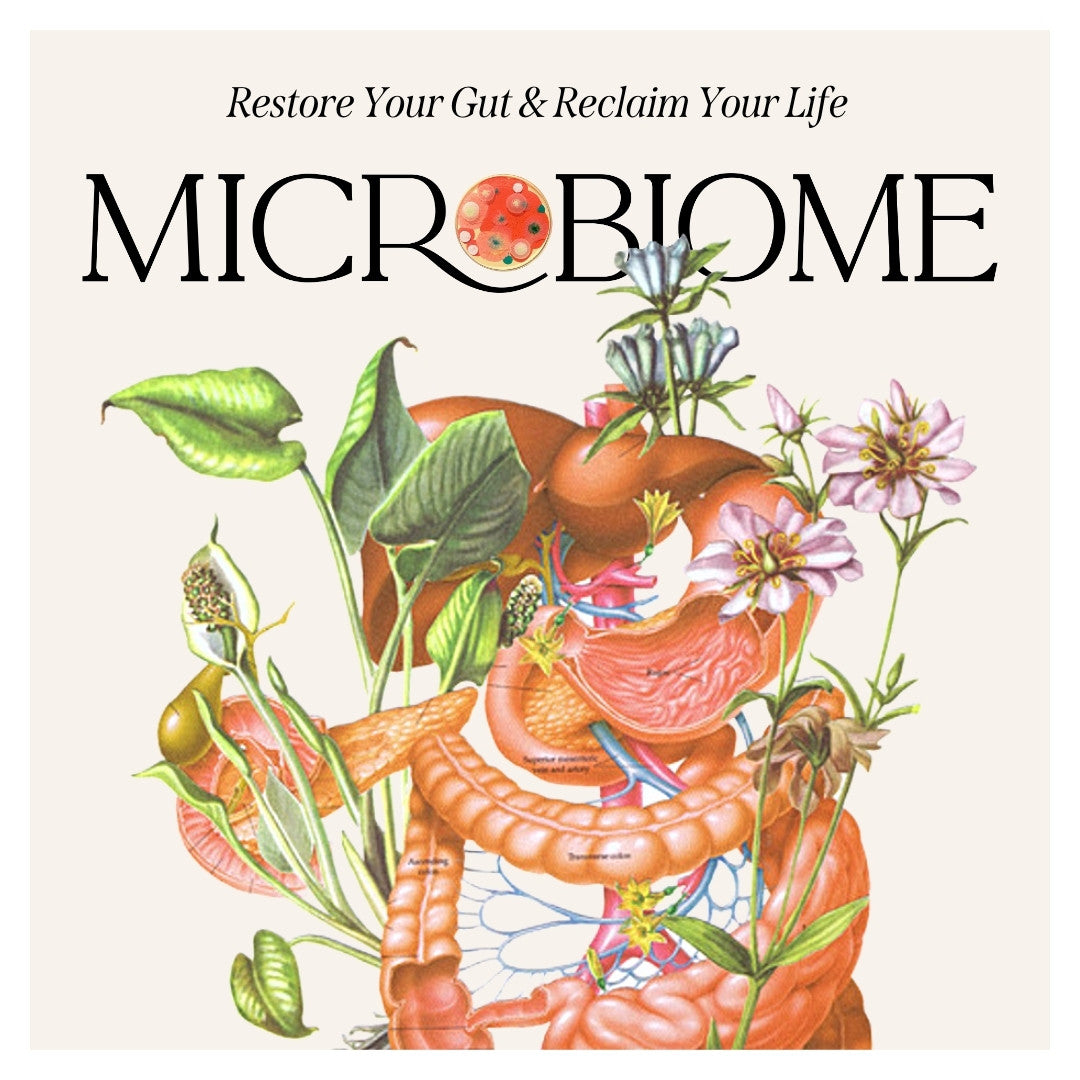

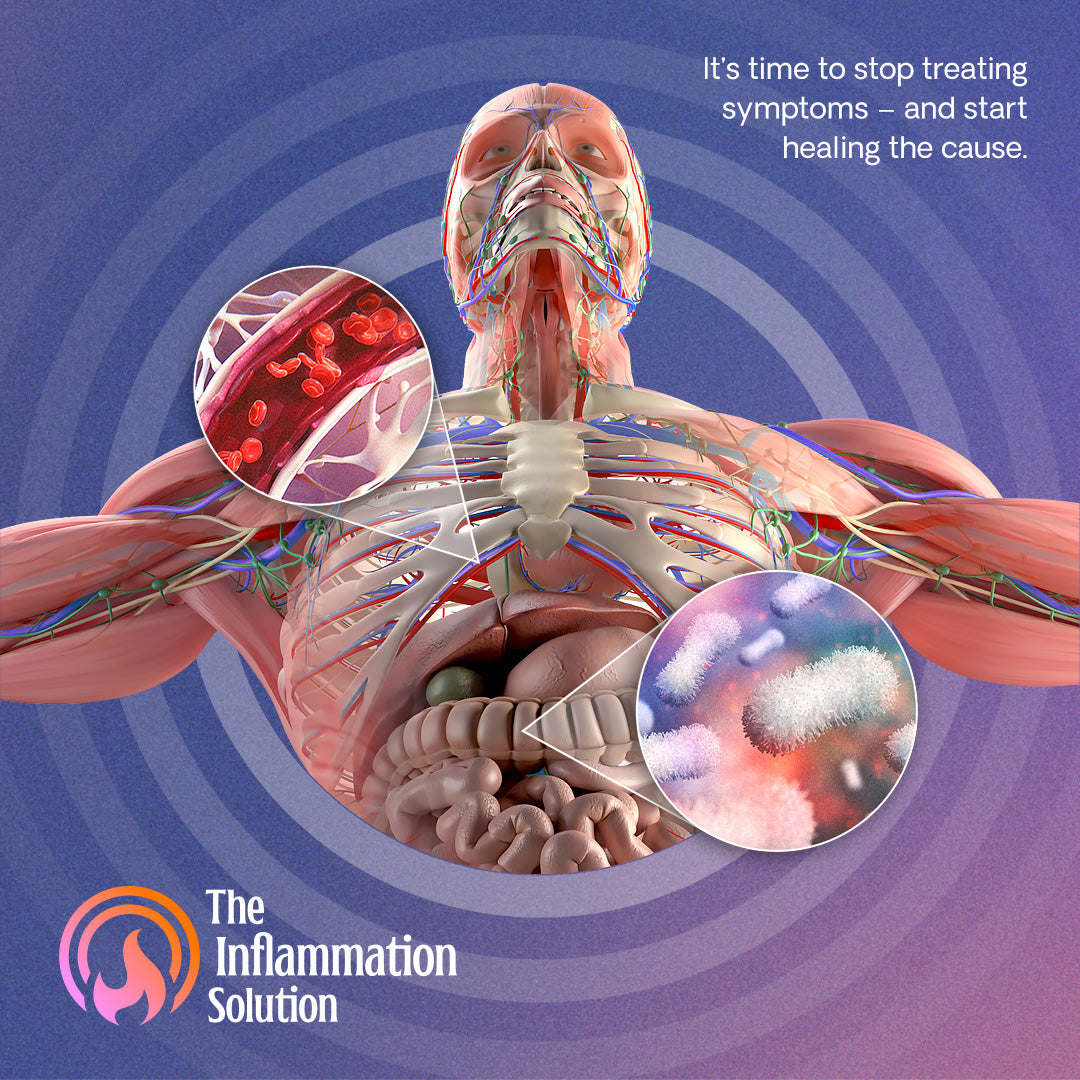
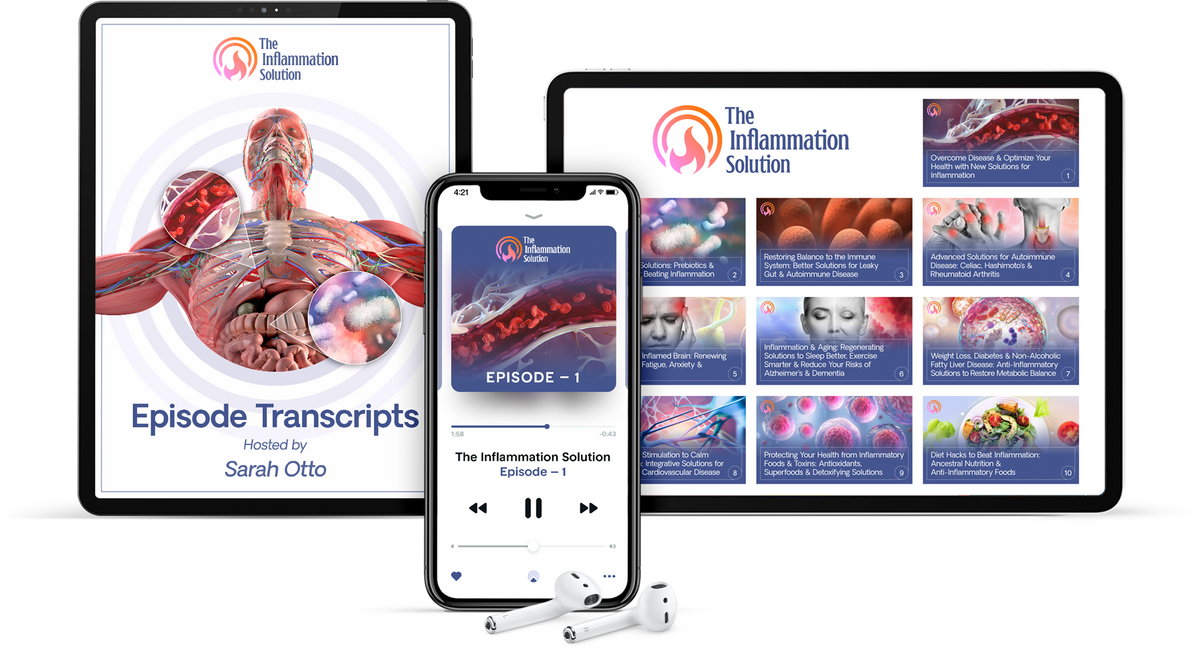
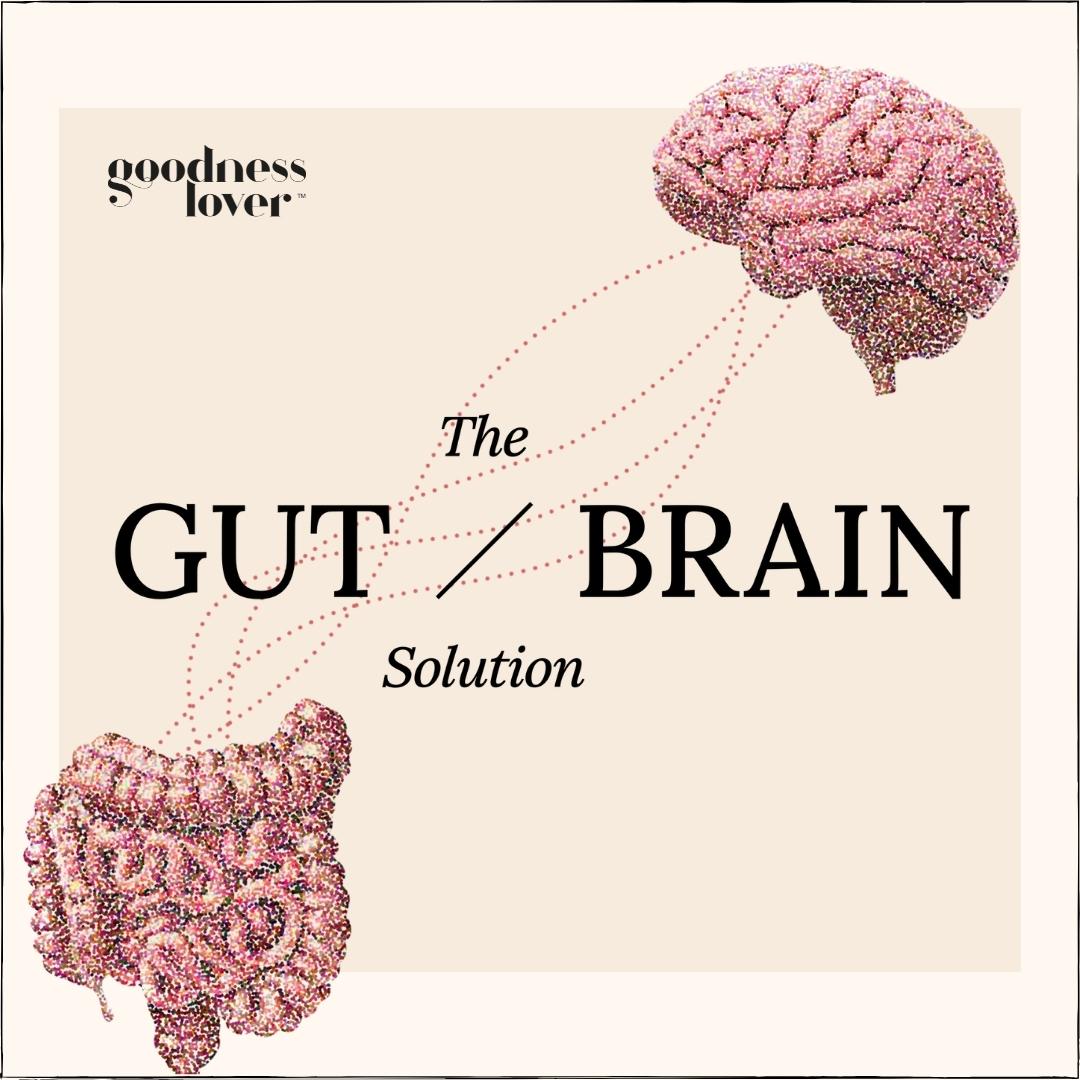

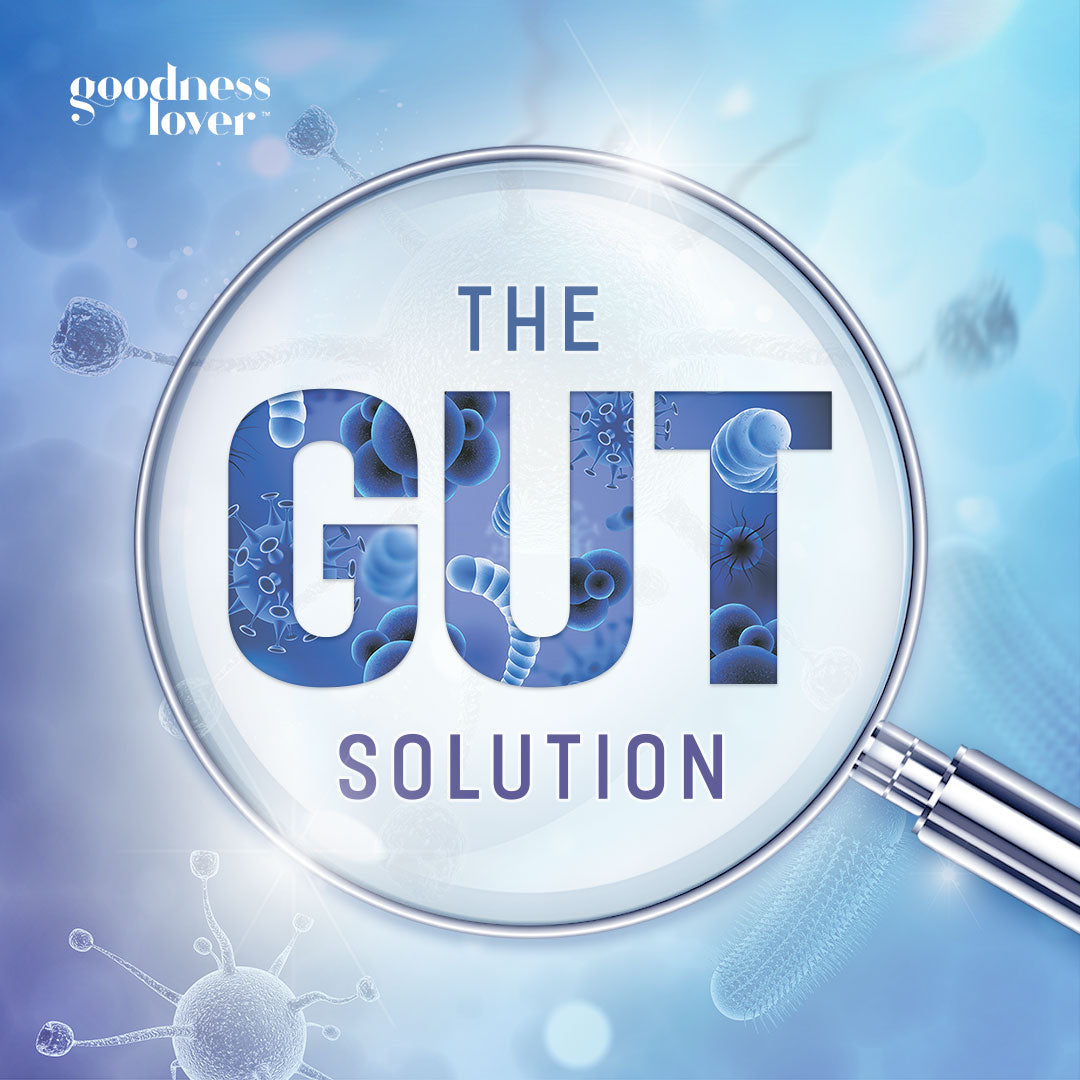
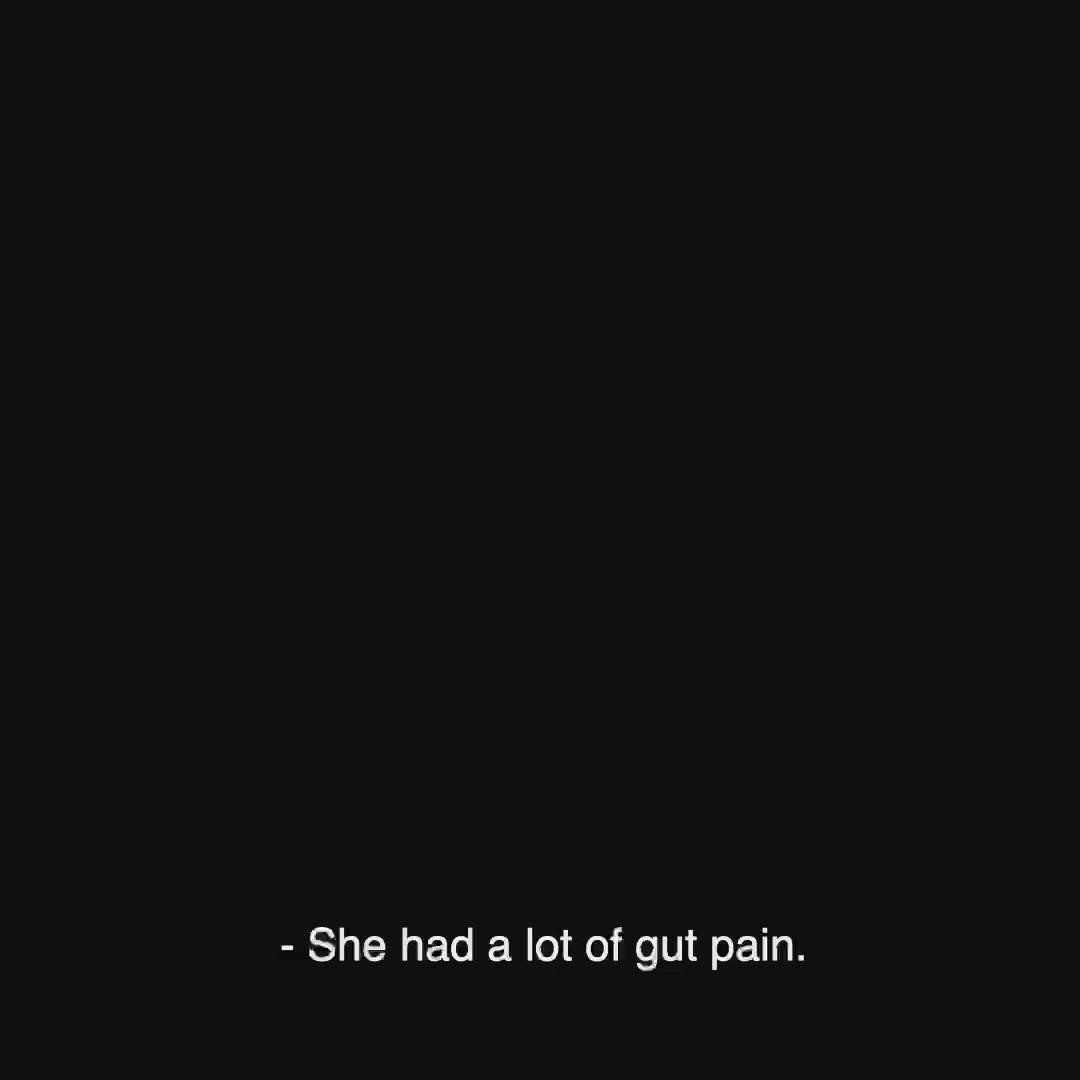
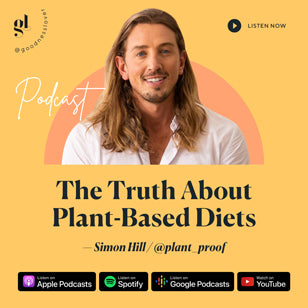
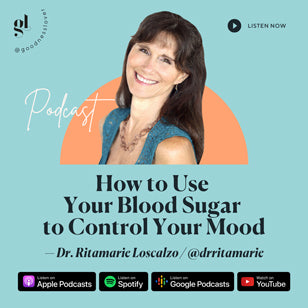

What Do You Think? Comment Below: